If you are pregnant, or want to be come pregnant, you’re probably drowning in information overload. However, there is one topic you really shouldn’t overlook, and that is prenatal vitamins.
Why Prenatal Vitamins Are Important
Why should you take a prenatal? Most importantly, it helps make sure that you are getting all the nutrients that not only you need, but your developing baby as well. While you may get bits and pieces of all these nutrients from things you eat, a prenatal vitamin ensures that you don’t
When Should You Take Prenatal Vitamins
So when should you start taking prenatal vitamins? Well, there are varying opinions on this. For the most part, if you are a woman of childbearing age, you should be getting 400 mcg of folic acid daily anyways, regardless of your pregnancy status. And because some of the nutrients in the prenatal are essential for the first few weeks after conception (as in, when most people don’t even realize they are pregnant,) you don’t want to wait until you are already pregnant. I’ll mention several reasons why later.
However, the general consensus is to start taking prenatal vitamins several months before you even conceive, during the entire duration of your pregnancy, and even afterwards — especially if you are breastfeeding. Personally, I always take a prenatal vitamin — I figure it’s important to take some kind of multi-vitamin every day, so I might as well take one that would benefit a baby if I were to become pregnant unexpectedly.
What a Prenatal Has to Have
So what should you look for in a prenatal vitamin? To start out, make sure that your vitamin contains the following nutrients (according to WebMD):
- 400 mcg folic acid
- 400 IU of vitamin D
- 200 to 300 mg of calcium
- 70 mg of vitamin C
- 3 mg of thiamine
- 2 mg of riboflavin
- 20 mg of niacin
- 6 mcg of bitamin B12
- 10 mg of vitamin E
- 15 mg of zinc
- 17 mg of iron
Where To Buy, Cost, and Brands
You should also know that not every prenatal is created equal. Some have odd additives, others don’t contain the correct amount of essential vitamins. There are tablets, chewable, or drinkable. When I was pregnant, I loved getting the gummy ones (what can I say…I’m a kid at heart.) However, what I didn’t realize was that I may not have been buying the best ones for me.
Prenatal vitamins have varying costs, and well, you get what you pay for. It may be tempting to buy the $4 bottle that has 300 capsules, but make sure it’s high quality. Most of the time, your physician will be more than happy to give you samples of different prenatal vitamins. It’s probably a good idea to try out different vitamins, because sometimes, there are side effects to different vitamins, such as nausea. It would be unfortunate to buy a big bottle of prenatal vitamins, only to find out you don’t handle them well. Some insurances will cover prenatal vitamins as well, so be sure to look into that.
So what brand should you get? Well, there isn’t a set-in-stone answer, but I want to introduce you to a brand that I can whole-heartedly endorse. It’s not the prenatal I took while I was pregnant, but I wish I had. I was sent this product to review, and I was very impressed!
Liquid Health manufacturers liquid and all-natural nutritional supplements. The company recently released the Liquid Prenatal Multi, an organic, liquid prenatal vitamin.
What makes this prenatal different than others? Well, here are a few reasons:
- Because of it’s liquid form, it is far easier for the body to absorb the nutrients than in a capsule or tablet form. There is also no fillers or additives in the formula.
- It contains folate, rather than just folic acid. Folic acid is the synthetic version of folate, which is what most prenatal vitamins contain. The Liquid Health Prenatal contains 100% organic certified lemon-peel extract, which is an excellent source of folate. And, there is 800 mcg in this supplement, which is about twice as much as most other supplements.
- None of the vitamins or nutrients in this are made from synthetic material or preservatives, and are free of pesticides or fertilizers.
- The iron is gentle, and not likely to cause constipation (which is actually a common complain with prenatal vitamins)
- It contains NutraFlora, which helps with your digestive system and also improve calcium absorption.
- It is gluten-free, is sweetened with stevia leaf extract, and is a tropical berry flavored.
- For more information on what the vitamin is made of, why it’s so good for you, as well as frequently asked questions, check out this page.

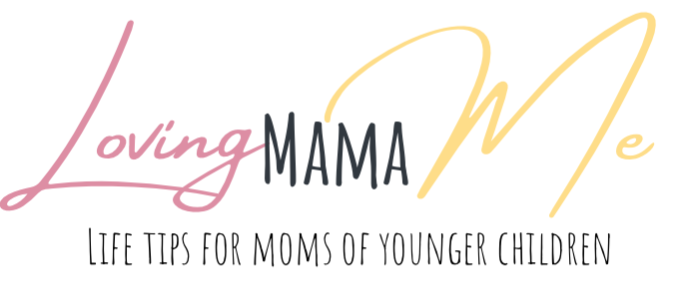
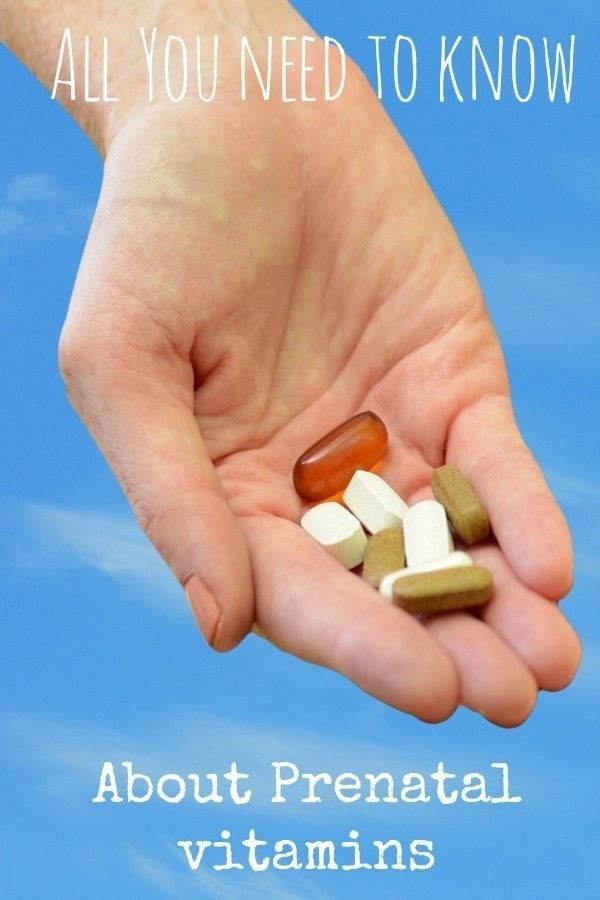
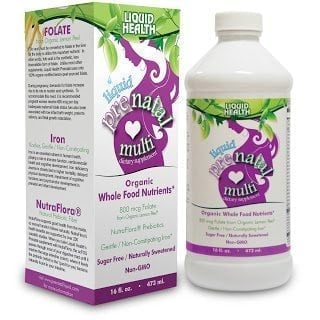
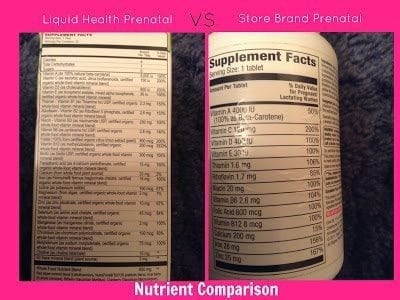
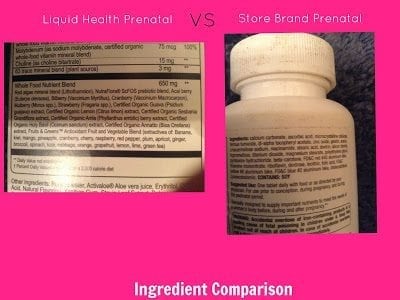
Thanks for the giveaway 🙂
What an informative post! Prenatal vitamins are SO important and I had no idea they made them in liquid form! Thanks for such a great, informative post!
Great post and oh so informative! I’m not to the point of taking pre natal vitamins, but if I were I’d definitely have to try this out!
Thanks for this post! Very informative on a very important topic! 🙂
I’ve always thought prenatals were good for women of child-bearing age regardless if they were trying to get pregnant or not. 🙂 Thanks for sharing!!
Agree. It’s important for women if plan to have a baby and take prenatal vitamins from 3 moths before conceive.
So here you may learn something to choose the best prenatal vitamins in 2014:
http://www.thebestprenatalvitamins.com
I am currently taking a LIQUID PRENATAL and it works really well for me. It’s Nature’s Plus – Source of Life.
I find it really easy to swallow (well… cuz it’s liquid. Lol) But, the thing with liquids is you have to refrigerate it.